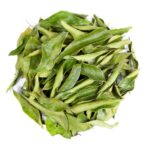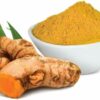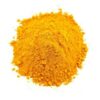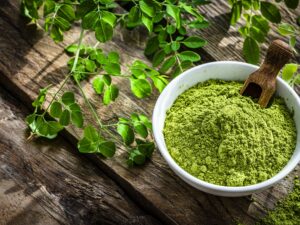Description
Turmeric is the spice that gives curry its yellow color.
Turmeric has a warm, bitter taste and is frequently used to flavor or color curry powders, mustards, butters, and cheeses. Because curcumin and other chemicals in turmeric might decrease swelling, it is often used to treat conditions that involve pain and inflammation.
People commonly use turmeric for osteoarthritis. It is also used for hay fever, depression, high cholesterol, a type of liver disease, and itching, but there is no good scientific evidence to support most of these uses. There is also no good evidence to support using turmeric for COVID-19.
Don’t confuse turmeric with Javanese turmeric root or tree turmeric. Also, don’t confuse it with zedoary or goldenseal, which are unrelated plants that are sometimes called turmeric.
Possibly Effective for
- Hay fever. Taking turmeric by mouth seems to reduce hay fever symptoms such as sneezing, itching, runny nose, and congestion.
- Depression. Most research shows that taking curcumin, a chemical found in turmeric, by mouth reduces depression symptoms in people already using an antidepressant.
- High levels of cholesterol or other fats (lipids) in the blood (hyperlipidemia). Taking turmeric by mouth seems to lower levels of blood fats called triglycerides. But the effects of turmeric on cholesterol levels are conflicting. Also, there are many different turmeric products available. It is not known which ones work best.
- Buildup of fat in the liver in people who drink little or no alcohol (nonalcoholic fatty liver disease or NAFLD). Taking turmeric extract by mouth reduces markers of liver injury in people who have this condition. It also seems to help prevent the build-up of more fat in the liver.
- Swelling (inflammation) and sores inside the mouth (oral mucositis). Taking curcumin, a chemical found in turmeric, by mouth, or as a lozenge or mouthwash, seems to prevent swelling and sores in the mouth during radiation treatment for cancer.
- Osteoarthritis. Taking turmeric extracts, alone or together with other herbal ingredients, can reduce pain and improve function in people with knee osteoarthritis. Turmeric might work about as well as ibuprofen for reducing pain. But it doesn’t seem to work as well as another drug, called diclofenac.












Reviews
There are no reviews yet.